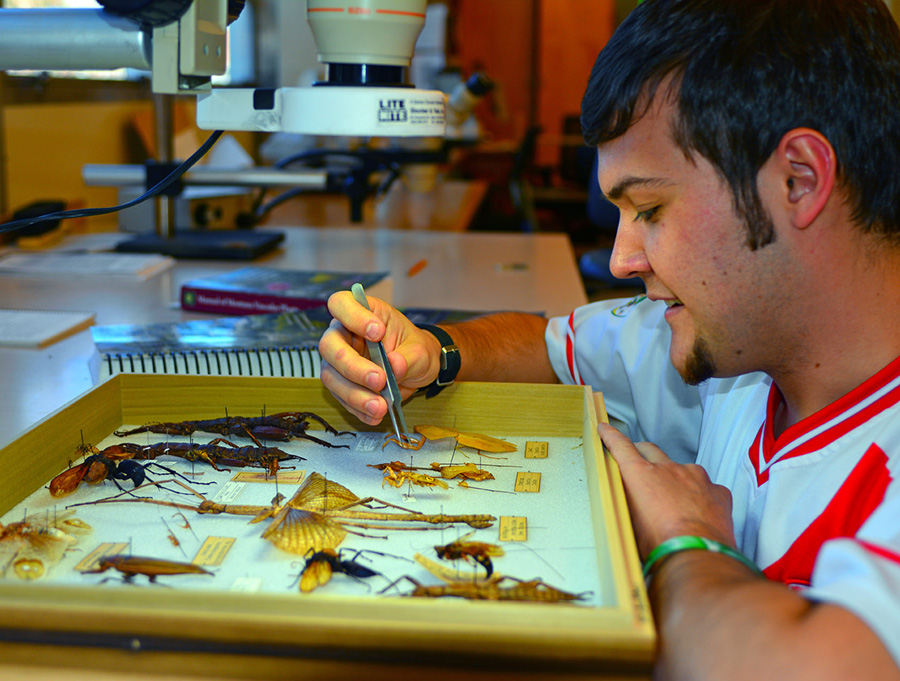The College of Science is offering a virtual Discover Science Lecture Series experience amidst the COVID-19 pandemic. This fall the virtual lectures will feature leading scientists in the College. Learn about exciting new research and groundbreaking science from the comfort of your own home.
“While our traditional in-person lectures will be postponed to keep our community safe and healthy during this time, we hope you will join us from your couch for Discover Science at Home,” Jeff Thompson, dean of the College of Science said.
Biologist Beth Leger, director of at the University of Nevada, Reno Museum of Natural History, will give her talk titled “Tales from the crypt: What can we learn from natural history museums?” at 7 p.m. on Thurs., Oct. 22. Registration is required.
Beyond the sometimes old-fashioned displays (dioramas, skins, and skeletons), there is a whole world of irreplaceable collections hidden away in scientifically controlled environments representing a record of the history of life on earth that exists nowhere else. In addition to educating the public, these collections are important for lines of research that include questions about responses to climate change, managing invasive species and the identification of new diseases, among many others. Leger will give the audience a tour of that world.
Many people appreciate the aesthetic appeal of natural history museums, and these collections are a treasured part of school field trips, family vacations and rainy weekend days – for people lucky enough to have access to a public museum of natural history.
The University has one such collection here at the Museum of Natural History, which houses plants and animals from our region and beyond, documenting the life of our state with specimens dating back to the 1850s.
Leger will describe the museum, its waxing and waning in favor over time, current efforts to protect, preserve, and share these precious items, as well as present examples of how scientists are using collections to answer some of the biggest questions of our time. Museum research has led to some unexpected discoveries, providing answers to questions such as: How does human harvest affect wild organisms? Are all species responding similarly to climate change? And why is a museum curator’s work never done?
The next lecture in the Discover Science at Home Speaker Series is Nov. 19 with Neil Lareau, an atmospheric scientist and assistant professor in the Department of Physics. He will give his talk, titled “Radar and Lidar Observations of Wildfire Plume Dynamics,” about how large, high-intensity wildfires can generate their own extreme weather, including fire-generated thunderstorms (i.e., pyrocumulonimbus) and rare fire-tornados. His research aims to understand these phenomena using state-of-the-science radars and lidars, which can probe the internal dynamics of wildfire convective plumes.
About the Discover Science Lecture Series
The Discover Science Lecture Series was founded by the College of Science in 2010, with the goal of bringing the country's top scientists to the University to share their knowledge, research and wisdom with the community.
"Science encompasses a wonderfully diverse collection of explorations into the unknown. We invite science lovers and the science-curious to join us and experience the extent of the science universe as the best scientists on the planet visit the University of Nevada, Reno for our Discover Science Lecture Series," Thompson, dean of the College of Science, said.
Past speakers in the series include astrophysicists Michio Kaku and Neil deGrasse Tyson; Robert Ballard, who discovered the wreck of the Titanic; and Bill Nye the Science Guy.












